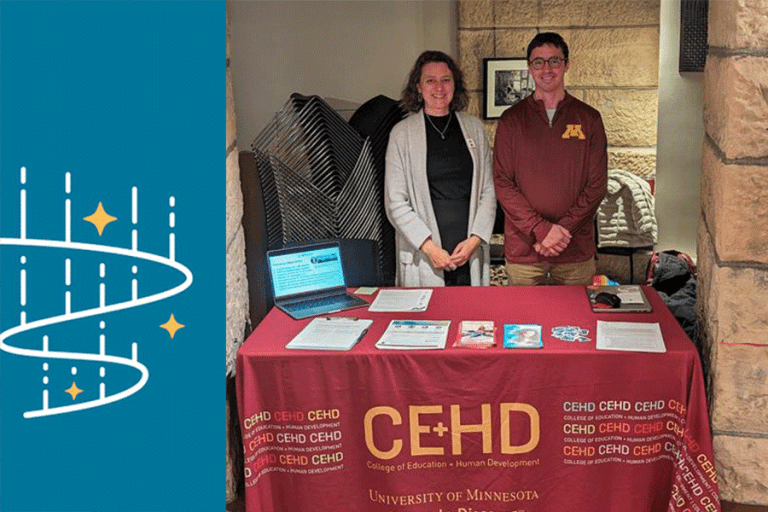While Minnesota often ranks among the most educated states, there is one crucial area of study that the North Star State lacks: computer science (CS).
In Minnesota, only 28 percent of high schools offer these essential programs. Of these, 12 percent are urban schools. Meanwhile, neighboring Iowa and Wisconsin are significantly higher, at 71 percent and 66 percent, respectively. Nationally, an average of 58 percent of schools offer these courses.
An effort at the University of Minnesota’s College of Education and Human Development aims to significantly narrow that gap.
The Northern Lights Collaborative for Computing Education was created in late 2023 in part to improve Minnesota’s ranking in its CS course offerings. The collective works with local and national organizations as well as community leaders to help school districts meet this need.
“Our goal is to be leaders at the national and state level in supporting community-focused computer science education,” says Paul Schonfeld, district support coordinator for the collaborative.
Northern Lights recently received funding for three initiatives that will help bring more computer science courses to districts that need them.
Through a grant from the National Science Foundation, “K12 CS Pathways for Rural and Tribal Communities,” the collaboration partners with four northern Minnesota school districts to provide support as they build their own district visions in CS education subject. The grant is a four-year project aimed at creating sustainable CS pathways. Partner districts are part of a professional learning network that shares best practices and strategies for adding computer science in elementary, middle, and high schools, with a focus on supporting Native American students and students with disabilities.
“Districts have the opportunity to collaborate with our organization and partner districts while working toward their own goals,” Schonfeld says. “Northern Lights provides personalized professional development to districts and also helps them choose their curriculum and seek additional support from partner organizations.
Northern Lights also recently received a Google gift to support the development of a Native Studies curriculum unit integrating Ojibwe and Dakota languages and cultures. Up to 15 schools with significant Native American populations will receive stipends for educators to attend workshops, implement a computer science curriculum unit, and provide feedback to improve materials. Northern Lights was one of only three academic organizations in the country to receive funding from Google to increase access and participation for Indigenous students from K-12 through the post-secondary level.
The collaboration also partners with youth-serving organizations in Duluth to document, study and support informal computer science learning opportunities for K-12 youth outside of school hours.
Within schools, media specialists at the Duluth Elementary Library are now receiving professional training in computer science fundamentals and will implement computer science lessons in grades K-5 this year. The district is also adding or adjusting three courses at its middle schools for the 2024-25 school year.
Northern Lights also received more than $2.2 million in grants, including a subgrant to Georgia State University, from Google.org for PrepareCS. PrepareCS is a partnership between the University of Minnesota-Twin Cities, the University of Nebraska at Omaha, and Georgia State University. This funding will advance computer science education by integrating training into pre-service teacher education programs, including the development of pathways for computer science teachers, across the United States.
According to the Minnesota Technology Association, the median tech salary in Minnesota is $101,365, and the tech sector has an impact of $36.1 billion annually, representing 7.7% of the overall economy. of the state. The group’s report estimates that 92,537 new technologists will be needed in Minnesota over the next 10 years.
Not only are CS courses gateways to STEM careers, they are also increasingly necessary in everyday life.
“As our society increasingly relies on digital technologies, it is imperative that students also understand computer science,” says Jennifer Rosato, director of Northern Lights. “Students learn science to understand the world around us. »
This is adapted from a story originally written by the College of Education and Human Development..


